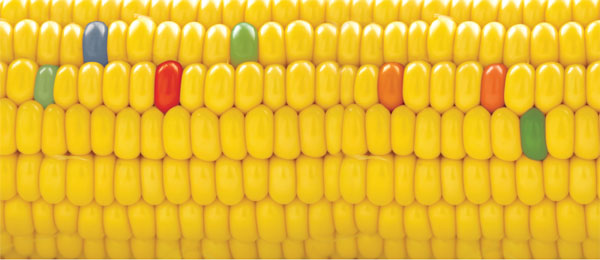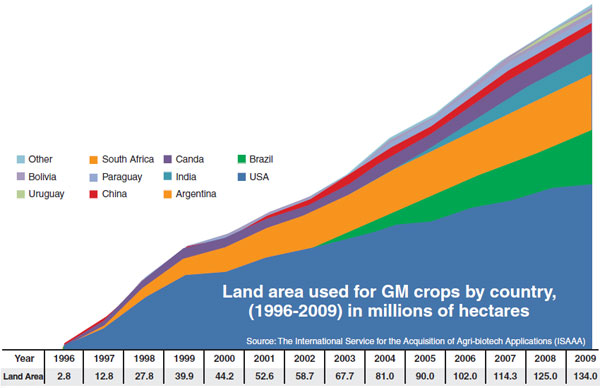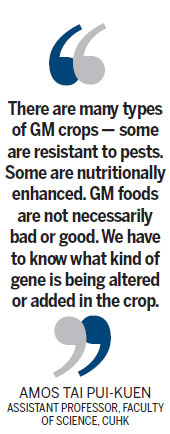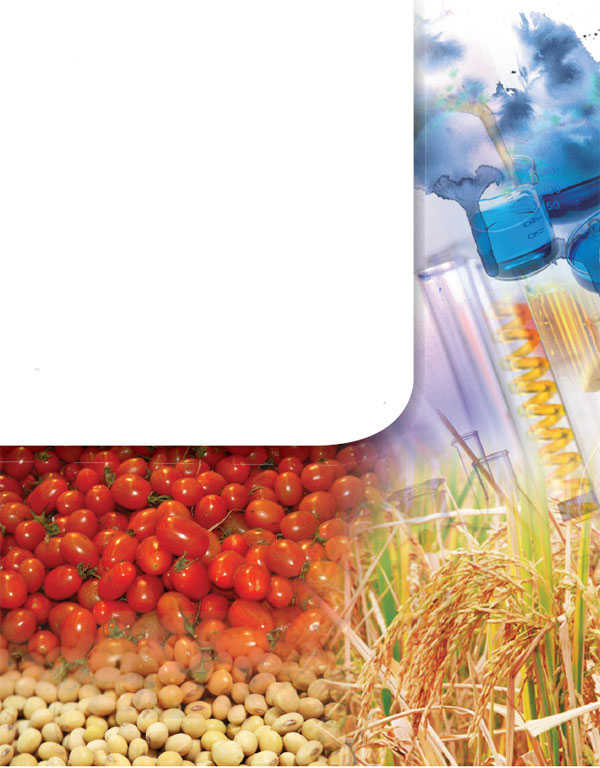Superior genes for our beans
Updated: 2014-09-29 05:49
By Ming Yeung(HK Edition)
|
|||||||||



Even as the hue and cry over GM foods continues, not too many people seem to have clear-cut ideas about the extent of damage these might cause to consumers. Ming Yeung reports
One evening not long ago, Sidney Chan, broiling in the summer heat, hungry but having no appetite for cooking, went to a supermarket to buy her favorite comfort food - baked beans in tomato sauce. It's a dish she's been "indulging" in since she was a kid. She went to the canned foods section, picked her favorite brand, paid no regard to the nutrition information on the label, and hurried to get in line for the cashier.
"Hi, do you know where the beans are from? Do you know they are actually genetically modified (GM)?" asked China Daily reporter.
"Really? I had no idea. I have been eating them forever," Chan sounded surprised. "GM food doesn't really concern me but it would be better to have a label telling us. Some may feel they've been cheated if they don't want GM food," she said.
Controversy over food products whose genetic structure (DNA) has been altered continues the world over, even in Hong Kong. Consumers here are likely to get GM papayas from the Chinese mainland, corn from the US, and canola oil from South America. Chances of packaged products containing GM products are pretty high. Most people don't know because the information isn't on the labels.
Objections to GM products are manifold. Some argue health concerns because long-term effects of GM crops and animal products are unknown. Some think there are better ways to increase food production to feed a global population expected to hit 11 billion in 2100. Some worry GM foods are produced under proprietary right, leaving a wide open door for parasitic corporations to tighten their stranglehold on the global economy.
GM food: a necessity?
Professor Lam Hon-ming, associate director of Institute of Plant Molecular Biology and Agricultural Biotechnology at the Chinese University of Hong Kong (CUHK), dismisses concerns about whether GM foods are potentially harmful. He says there is no scientific evidence showing GM foods are harmful to humans or the environment.
Some environmental groups disagree, but Lam contends increased yields facilitated by genetic changes to seed crops and animals are likely to relieve pressure on global food supplies in the future.

Professor Amos Tai Pui-kuen of the Earth System Science Programme at CUHK agrees global crop production will fall. He's done a study using a sophisticated computer model. He predicts food production will fall 10 percent by 2050, while demand for food will explode worldwide by at least 50 percent.
Tai's study is the first of its kind to explore the interactive effects of climate change and ozone depletion on agriculture.
"Crops are sensitive to ozone, environmental pollution and excess heat. Since air pollution in China is very serious, aggressive ozone protection is more helpful than curbing climate change with regard to improving crop yield," Tai commented.
Of greater concern to many is the economic factor - that a few monster corporations have established a virtual monopoly over the production of GM foods. An unofficial study by the international conservation group ETC lists the three largest GM food conglomerates Monsanto (US), Dupont (US) and Syngenta (Switzerland) as controlling 47 percent of the GM food production in the world.
Fierce competition among different regions to grab a share of the world's food market has led to volatile pricing and could pose a threat to global food security. Hong Kong people inevitably will have to spend more on food, thus widening wealth disparity between the rich and poor, predicted Tai.
Hong Kong easily falls prey to price wars. Less than five percent of the SAR's crops are homegrown.
Grow locally, go traditional
"There is a possibility to resurrect local farming. The government should subsidize local farming. This could at least in part alleviate the need to import pricey goods," he said.
Growing more heat-tolerant crops such as corn in regions hard-hit by global warming is another effective measure to tackle the problem, Tai added. "We could consider transplanting corn grown in warmer regions to cooler areas such as the northern parts of the US and China, where ground temperatures are expected to rise by 2-3 degree Celsius by 2050. Or we could try to inject heat-tolerant substances into certain crops to resist the heat."
Tai said GM crops can alleviate pressure on food supplies by a small amount only. He notes that output from traditional major agricultural regions in America and in Europe plateaued after the Green Revolution in the 1970s. "The potential for growing GM food in order to increase output in those regions is very low," Tai commented.
Professor Lam Hon-ming is exploring the possibility of altering the genes of certain crops in order to strengthen their ability to stand against extreme weather conditions. "GM food is only one possibility. We can't expect to solve all the problems," Lam said.
"There are many types of GM crops - some are resistant to pests. Some are nutritionally enhanced. GM foods are not necessarily bad or good. We have to know what kind of gene is being altered or added in the crop," Tai stressed.
Saved from extinction
China's agricultural authorities have granted certificates of safety to four types of GM produce - cotton, rice, corn and papaya, of which only cotton and papaya have been allowed for commercial production.
Most papayas sold in China are genetically modified. A decade ago an epidemic had almost wiped out the original species, Lam said.
Two years ago, GM papayas were exempted from Hong Kong's Genetically Modified Organisms (Control of Release) Ordinance, which aims to protect local biodiversity by preventing the release of GM species into the environment.
The government defended the exemption by saying that the GM form of the fruit is already present in Hong Kong and very hard to remove.
Food safety has always been top priority in Hong Kong and the regulatory authority could be relied on to safeguard the food, GM or organic, as long as the products come with labels containing precise information, said Tai.
In April 2002, the SAR government conducted a regulatory impact assessment on introducing a labeling scheme for GM food and the report indicated that there would be no increases in costs to the food traded under a voluntary labeling scheme. However, there would be some cost increases, in particular to small and medium enterprises, if a mandatory scheme was implemented.
"One thing we have to ask ourselves: how much would I want to invest in doing this? We ought to put in a huge amount of public resources to make it work," Lam stressed. "We also have to think about whether to label the product itself or the origin of product, pre-processed or post-processed."
"Shall we adopt a negative labeling warning people of the dangers of GM food? It would be unfair because we don't know what the dangers are," Lam said.
Contact the writer at mingyeung@chinadailyhk.com

(HK Edition 09/29/2014 page10)